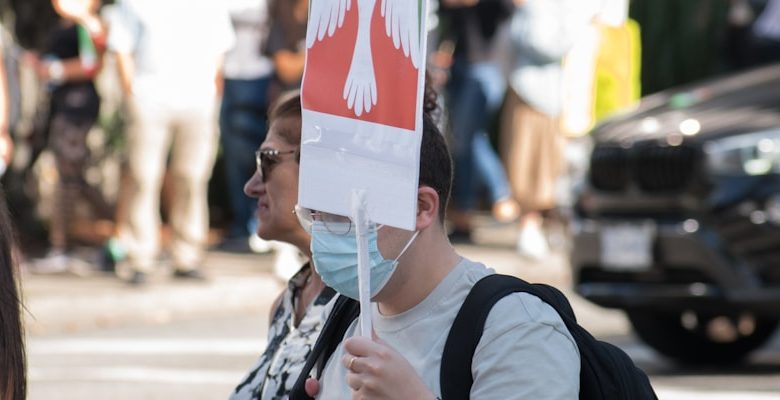NFTs and Intellectual Property Rights

- Understanding NFTs and their impact on intellectual property rights
- Exploring the intersection of NFTs and copyright law
- Challenges and opportunities for creators in the NFT space
- Navigating the legal landscape of NFTs and IP rights
- Protecting your digital assets: A guide for NFT creators
- The future of intellectual property in the age of NFTs
Understanding NFTs and their impact on intellectual property rights
NFTs, or non-fungible tokens, have been making waves in the world of intellectual property rights. These digital assets represent ownership of unique items or pieces of content on the blockchain. As NFTs continue to gain popularity, it is essential to understand their impact on intellectual property rights.
One of the key aspects of NFTs is their ability to provide proof of ownership and authenticity for digital assets. This has significant implications for creators and owners of intellectual property, as it allows them to establish a clear record of ownership and control over their work. By tokenizing their creations as NFTs, artists, musicians, writers, and other creators can protect their intellectual property rights in a digital environment.
However, the rise of NFTs also raises questions and challenges regarding intellectual property rights. For example, the ownership of an NFT does not necessarily grant the buyer copyright or other intellectual property rights associated with the underlying work. This distinction is crucial to understand, as it means that owning an NFT does not automatically entitle the holder to reproduce, distribute, or otherwise exploit the content associated with the token.
Another issue to consider is the potential for copyright infringement and unauthorized use of intellectual property through NFTs. Since NFTs can be created and traded by anyone, there is a risk that individuals may tokenize and sell content without the permission of the original creators. This can lead to disputes over ownership and rights, highlighting the need for clear regulations and guidelines in the NFT space.
Exploring the intersection of NFTs and copyright law
Exploring the intersection of NFTs and copyright law is crucial in understanding the implications of this emerging technology on intellectual property rights. NFTs, or non-fungible tokens, have gained popularity in the digital art world as a way to authenticate and sell unique pieces of art. However, the use of NFTs raises questions about how copyright law applies to these digital assets.
One of the key issues surrounding NFTs and copyright law is the question of ownership. When an artist creates a piece of digital art and sells it as an NFT, who owns the copyright to that work? Does the artist retain the rights to the underlying work, or does the buyer of the NFT now have the exclusive rights to reproduce and distribute the digital asset?
Another concern is the potential for copyright infringement through the creation and sale of NFTs. Since NFTs are based on blockchain technology, it can be difficult to track the original source of a digital asset. This raises questions about how copyright holders can protect their work from unauthorized use and distribution in the NFT marketplace.
As NFTs continue to grow in popularity, it is essential for creators, buyers, and copyright holders to understand the legal implications of using this technology. By exploring the intersection of NFTs and copyright law, we can ensure that intellectual property rights are protected in the digital age.
Challenges and opportunities for creators in the NFT space
Creators in the NFT space face a unique set of challenges and opportunities when it comes to intellectual property rights. On one hand, NFTs provide creators with a new way to monetize their work and reach a global audience. This can open up new revenue streams and opportunities for collaboration with other artists and brands.
However, there are also risks involved in the NFT space. One of the biggest challenges is the potential for copyright infringement. Because NFTs are digital assets that can be easily replicated and shared online, creators need to be vigilant in protecting their intellectual property rights. This includes registering their work with the appropriate authorities and taking legal action against infringers.
Another challenge for creators in the NFT space is the lack of regulation. Unlike traditional art markets, the NFT space is still relatively unregulated, which can make it difficult for creators to navigate legal issues and protect their rights. This means that creators need to be proactive in educating themselves about intellectual property law and seeking out legal advice when necessary.
Despite these challenges, there are also many opportunities for creators in the NFT space. For example, NFTs can provide artists with a new way to connect with their fans and build a community around their work. By leveraging blockchain technology, creators can also ensure the authenticity and provenance of their work, which can increase its value in the eyes of collectors.
Navigating the legal landscape of NFTs and IP rights
Navigating the legal landscape of NFTs and intellectual property (IP) rights can be a complex and challenging task for creators and buyers alike. As the popularity of NFTs continues to grow, it is essential to understand the implications of IP rights in the digital art world.
One of the key considerations when dealing with NFTs and IP rights is the issue of ownership. While purchasing an NFT gives the buyer ownership of the token itself, it does not necessarily grant them ownership of the underlying intellectual property. This means that creators must be careful when minting NFTs to ensure that they are not inadvertently giving away their rights to their work.
Another important aspect to consider is copyright law. Copyright protects original works of authorship, including digital art, music, and literature. When creating or purchasing an NFT, it is crucial to ensure that the work does not infringe on any existing copyrights. Additionally, creators should consider registering their copyrights to protect their work from unauthorized use.
Trademarks are another area of IP law that creators and buyers of NFTs should be aware of. Trademarks protect brand names, logos, and slogans, and using a trademarked image or phrase in an NFT without permission could lead to legal consequences. It is essential to conduct thorough research to ensure that the content of an NFT does not violate any trademarks.
In conclusion, navigating the legal landscape of NFTs and IP rights requires a thorough understanding of copyright, trademark, and ownership laws. By being aware of these issues and taking the necessary precautions, creators and buyers can protect their rights and avoid potential legal disputes in the future.
Protecting your digital assets: A guide for NFT creators
When it comes to protecting your digital assets as an NFT creator, there are several important steps you can take to safeguard your intellectual property rights. By following these guidelines, you can ensure that your NFTs are secure and that you retain control over your creations.
- Watermark your NFTs: Adding a visible watermark to your NFTs can help deter unauthorized use and distribution of your work. This can also serve as a way to identify your creations and establish ownership.
- Register your copyright: Consider registering your copyright for your NFT creations to establish legal proof of ownership. This can help you in case of any disputes or infringement issues.
- Use smart contracts: Implementing smart contracts can help automate the licensing and distribution of your NFTs. This can ensure that you receive royalties for each resale of your work.
- Monitor your NFTs: Regularly monitor online platforms and marketplaces to detect any unauthorized use or infringement of your NFTs. Take action promptly if you discover any violations.
- Consult with legal experts: If you have any concerns about protecting your intellectual property rights as an NFT creator, consider seeking advice from legal professionals specializing in copyright and digital assets.
By taking these proactive measures, you can protect your digital assets and preserve the value of your NFT creations. Remember that safeguarding your intellectual property rights is crucial in the fast-growing world of NFTs.
The future of intellectual property in the age of NFTs
The rise of NFTs has brought about a new era in the world of intellectual property rights. As digital assets that are unique and indivisible, NFTs have the potential to revolutionize the way creators protect and monetize their work. However, this new technology also raises questions about the future of intellectual property in the age of NFTs.
One of the key issues surrounding NFTs and intellectual property is the question of ownership. While NFTs allow creators to tokenize their work and sell it as a unique digital asset, the underlying intellectual property rights still belong to the creator. This means that even if someone purchases an NFT, they do not necessarily own the copyright to the work itself.
Another concern is the potential for copyright infringement in the world of NFTs. Because NFTs are based on blockchain technology, it can be difficult to track the original creator of a piece of digital art. This opens up the possibility for unauthorized use and distribution of copyrighted material, leading to legal disputes and challenges for creators looking to protect their work.
As the use of NFTs continues to grow, it will be important for creators to understand how this technology impacts their intellectual property rights. By staying informed and taking proactive steps to protect their work, creators can navigate the evolving landscape of NFTs and ensure that their rights are upheld in the digital age.



